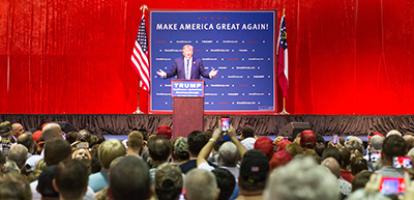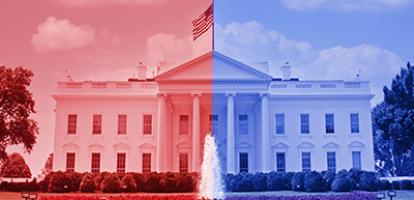From: Christopher Sands
To: The Hon. Chrystia Freeland, Minister of Global Affairs
Date: May 25, 2018
Re: Why Canada Should Resist a Skinny NAFTA 2.0
In recent days, Washington has been buzzing with speculation that a “Skinny” NAFTA deal is possible. Treasury Secretary Steve Mnuchin suggested it as the US and China appeared to be stepping back from the brink of a trade war. The Wall Street Journal editorialized that a Skinny NAFTA 2.0 might be possible if it was designed to avoid the need for congressional action.
Respectfully, I would advise Canada to avoid the siren song of a skinny NAFTA 2.0. It is based on dubious assumptions, would be unlikely to stabilize Canadian access to the US market, and could backfire.
There are two kinds of skinny NAFTA 2.0 deals that could be proposed, and I will call them Slim NAFTA and Thin NAFTA.
A Slim NAFTA 2.0 would make the minimum necessary changes to NAFTA 1.0 to satisfy Donald Trump. The difficulty here is in estimating what might be on such a list. Given that Trump has not endorsed a skinny NAFTA, this option might not even be attainable. Even if it was, it would not preclude a return to more difficult NAFTA revisions later. This was Trump’s attitude when a skinny Obamacare reform was proposed last year; he pledged to take what was offered and keep pressing for more.
A Thin NAFTA 2.0 would be designed to avoid the need for U.S. congressional approval. Similar to the design of the Security and Prosperity Partnership of North America (SPP), launched in 2005 but effectively abandoned in 2009, this option relies on the rule-making authority granted to the executive branch by Congress in prior legislation. For example, changes to the automotive rules of origin could be introduced through new rule making. Thin NAFTA 2.0 seems to be based on an assumption that gaining congressional approval would be the principal obstacle to NAFTA revision
The understandable temptation for Canada in a skinny NAFTA 2.0 lies in the prospect of concluding the renegotiation quickly and establishing a new normal.
Yet this short-term concern is a distraction from the potential for a NAFTA 2.0 deal that restores a US public consensus in favour of trade liberalization and North American economic integration (if not globalization). By giving voice to the concerns of NAFTA critics, Trump has re-opened the NAFTA debate; settling this debate requires an agreement that is comprehensive enough to be worth the effort (and disruption) of having done so.
The North American automotive industry has worked with the governments on rules of origin for NAFTA 2.0 that will address their priorities. Other sectors such as agriculture and energy are eager to preserve NAFTA 1.0 outcomes, and support bringing the talks to a quick conclusion by carrying over language and provisions into NAFTA 2.0. Republican congressional leaders are eager to settle the NAFTA question before the next Congress takes office in January, 2019, concerned about the challenge of building a bipartisan coalition to pass implementing legislation.
These groups have inspired the skinny NAFTA expedient, and the uncertainty effects of NAFTA renegotiation for Canada and Mexico are generating sympathy in both countries for this approach. Renegotiation fatigue is affecting politicians in all three countries.
And yet, Skinny NAFTA end games ignore the risks of an agreement without broad US public support. A Slim NAFTA could be construed as the result of NAFTA “capture” by certain industries who seek to use the NAFTA renegotiation to secure their own priorities and not the wider public interest.
And a Thin NAFTA that deliberately avoids congressional approval in the United States will be even more offensive to the principle of democratic accountability. Like the Obama administration’s decision not submit the Iran Deal or the Paris Accords on climate change to Congress, Canada would find a Thin NAFTA easily abandoned by a future administration – as was the case with the SPP.
For these reasons, Canada should be wary of Skinny NAFTA. Canada needs a Fat NAFTA for a durable resolution of the NAFTA renegotiation.
Christopher Sands is senior research professor and director of the Center for Canadian Studies at the Johns Hopkins University School of Advanced International Studies (SAIS) and a nonresident senior associate of the Center for Strategic and International Studies (CSIS) in Washington.
To send a comment or leave feedback, email us at blog@cdhowe.org.
The views expressed here are those of the author. The C.D. Howe Institute does not take corporate positions on policy matters.





